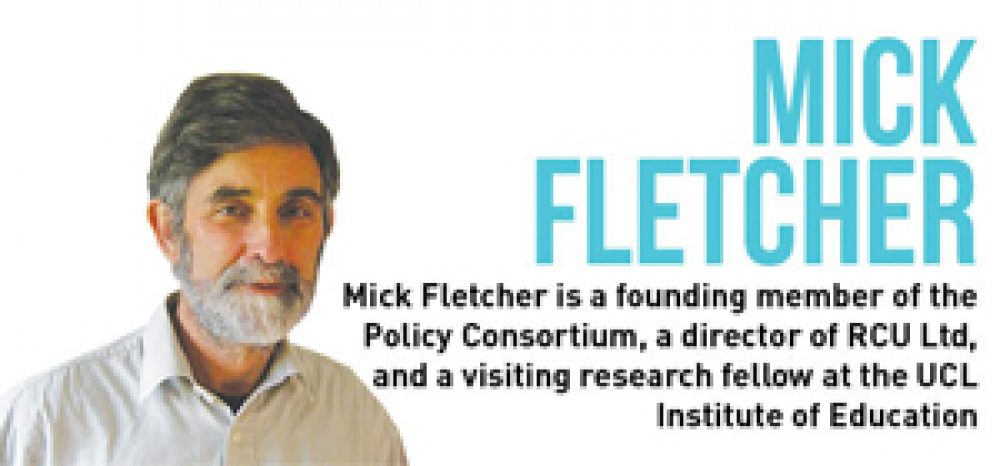Ofsted Chief Inspector Sir Michael Wilshaw’s second annual report on FE and skills pointed the sector in the direction of greater heeding of local enterprise partnerships. But to what extent is this deference warranted, asks Mick Fletcher.
The Chief Inspector’s annual report on FE and skills follows a now predictable format. It contains some useful analysis and important observations, noting for example that in many areas the major barrier to progress is government policy rather than provider practice.
Then someone, one must presume the Chief Inspector himself, superimposes some oversimplified headlines and tough talk aimed squarely at providers.
But this is damaging to the sector and diminishes the reputation of Ofsted.
The increased interest in employability outcomes in this year’s report is a case in point.
The report itself, and the survey of local accountability on which it is based, identify a range of factors affecting the complex relationship between education and employment.
They include the funding and accountability structure within which providers have to operate, the poor performance of many local enterprise partnerships (Leps) in terms of providing useful information about the labour market and the lack of progress at a national level in developing reliable and valid indicators of progression.
The Lep experiment is so similar to its failed predecessors in relation to FE planning that some healthy caution about the enterprise is called for”
Ofsted may have only recently prioritised employability, but the FE sector has seen successive failed attempts to ‘match the supply and demand for skills’ stretching back at least 30 years.
Inspectors may not remember the Work Related Non Advanced FE Development plans that all local education authorities had to produce in the 1980s, but they must recall the Strategic Area Reviews carried out by the Learning and Skills Council around a decade ago.
The Lep experiment is so similar to its failed predecessors in relation to FE planning that some healthy caution about the enterprise is called for.
Yet far from exhibiting caution the inspectors demonstrate a naive enthusiasm for the idea that all providers need to do is study the labour market information supplied to them and direct young people accordingly.
In this idealistic world, the very real difficulties of forecasting demand, or of separating projections from aspirations, let alone the practical and moral implications of denying choice to young citizens on the basis of other people’s guesswork, are ignored.
The City of Bristol is quoted as an example of bad practice in the annual report, which is curious because it had been an example of good practice in the survey on which the report is based. In this city we are told, only 20 per cent of FE provision matches Lep priorities.
It sounds shocking, but then the Lep priorities in Bristol were never intended to encompass all, or even a majority of the employment opportunities available. They represent areas where the Lep hopes to encourage growth. Andy Durnam of EMSI has estimated that the proportion of employment nationally in the 10 areas highlighted by the Lep can’t be far off 20 per cent — the pattern of college provision is more or less what you would expect.
Data experts at RCU, who have carried out detailed analyses of skills provision in several Lep areas, similarly warn against using general percentages as a performance indicator as there is no consensus about which qualifications should be included or excluded in the calculation.
Another criticism of colleges in the report is that in the preceding year only three of the 17 colleges visited had revised their curriculum ‘considerably’ to better meet employer demand.
The assumption, unsupported by any evidence, is that college curricula are so wide of the mark, and Lep analyses so clear and compelling, that nothing other than wholesale revision of the FE offer should be contemplated.
A more sensible interpretation would be that most colleges are too responsible to jettison years of incremental planning and proven student demand on the basis of some early crystal ball-gazing by an untested organisation.
None of this is to deny colleges need to carefully consider links between their programmes and the world of work. They should and almost all already do. Their attempts to do so however are not helped by the tabloid treatment of a complex issue.
Mick Fletcher is an FE Consultant



Your thoughts